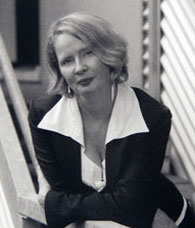With over thirty years’ experience working in his local authority, Eubert Malcolm brought a wealth of knowledge to the classroom. Having just been promoted to Assistant Director for Stronger and Safer Communities, he reflects on how the MBA has supported him to make a positive difference.
As local authority leaders go, Eubert Malcolm must be among the most personally invested in his community.
“Somebody said to me the other day that I’ve been in Haringey from boy to man,” he laughs, but with over thirty years’ experience in various roles in the local authority, this isn’t far from the truth. Eubert joined Haringey Council as an environmental health officer apprentice in 1988. From there, his role expanded into different fields as his skillset developed, encompassing housing, food safety and pollution.
“I made my way up the local authority and picked up Diplomas in Environmental Health and Management Studies along the way,” explains Eubert, “but I always felt that not having a first degree would hinder me at some point.”
The value of life experience
It was during the hunt for an undergraduate degree that Eubert stumbled across the Central Saint Martins Birkbeck MBA. The idea of studying part-time at the weekends was a particular draw, but was it really possible to do a Masters level programme without an undergraduate degree?
“I went along to the open evening without much hope,” says Eubert, “but I really liked the course leaders and they encouraged me to apply. I think I was the least qualified but most experienced of that first cohort, and the idea of a co-production and developing new types of leaders seemed perfect for my role. It felt like I was in the right place at the right time.”
Seeing things differently
The collaboration between Central Saint Martins and Birkbeck’s School of Business, Economics and Informatics offers an innovative perspective on businesses and the problems they face. This, combined with the diverse international cohort on the MBA, gives students an opportunity to look at situations from a fresh angle. For Eubert, this proved invaluable when looking for ways to connect with the local community:
“When I first started the MBA, there was lots of gang activity and a spate of deaths in the community. I wanted to learn more about how violence was affecting young people in Haringey, so I commissioned a community group to speak to them and to people in prisons to figure out the drivers of criminality. Until you actually sit down with young people and hear from them, their teachers and their parents, you don’t really understand the challenges that they are facing. We need to engage with them and ensure that they are part of the solution.”
Eubert’s MBA dissertation was Haringey’s public health approach to tackling serious youth violence, a combination of academic research and an in-depth evidence base that came from his experience in the local authority, which informed the young people at risk strategy.
“At Haringey, we want to co-produce strategies with the community,” he explains. “Now, we’re incorporating business principles into our local authority point of view and using action learning techniques to think issues through from beginning to end, predicting the challenges we might need to address along the way. It’s an approach the managers I work with are now also starting to adopt.”
Leading in the pandemic
The rapid unfolding of events in the COVID-19 pandemic has made an agile approach essential:
“If you look at how much COVID-19 has cost local authorities,” says Eubert, “I don’t think we’re going to be fully recompensed for that. It has made us look at what opportunities could come out of it instead.
“For example, we couldn’t deliver a lot of our face to face services during the pandemic and many of them went online. We found that the young people we work with instantly took to that approach, which we hadn’t really considered before.”
Now Eubert, his team and the wider council are working on campaigns to bring the local community together to reduce the spread of COVID-19: “The approach we’re taking, trying to get right to the hearts and minds of people in the borough, is something I don’t think we would have attempted before. It just goes to show that with the right support and network in the workplace, you can be successful even through challenging times. I know that anything I set my mind to I will be able to achieve.”
Further Information


